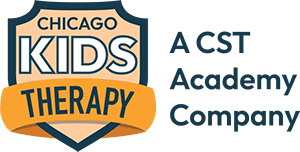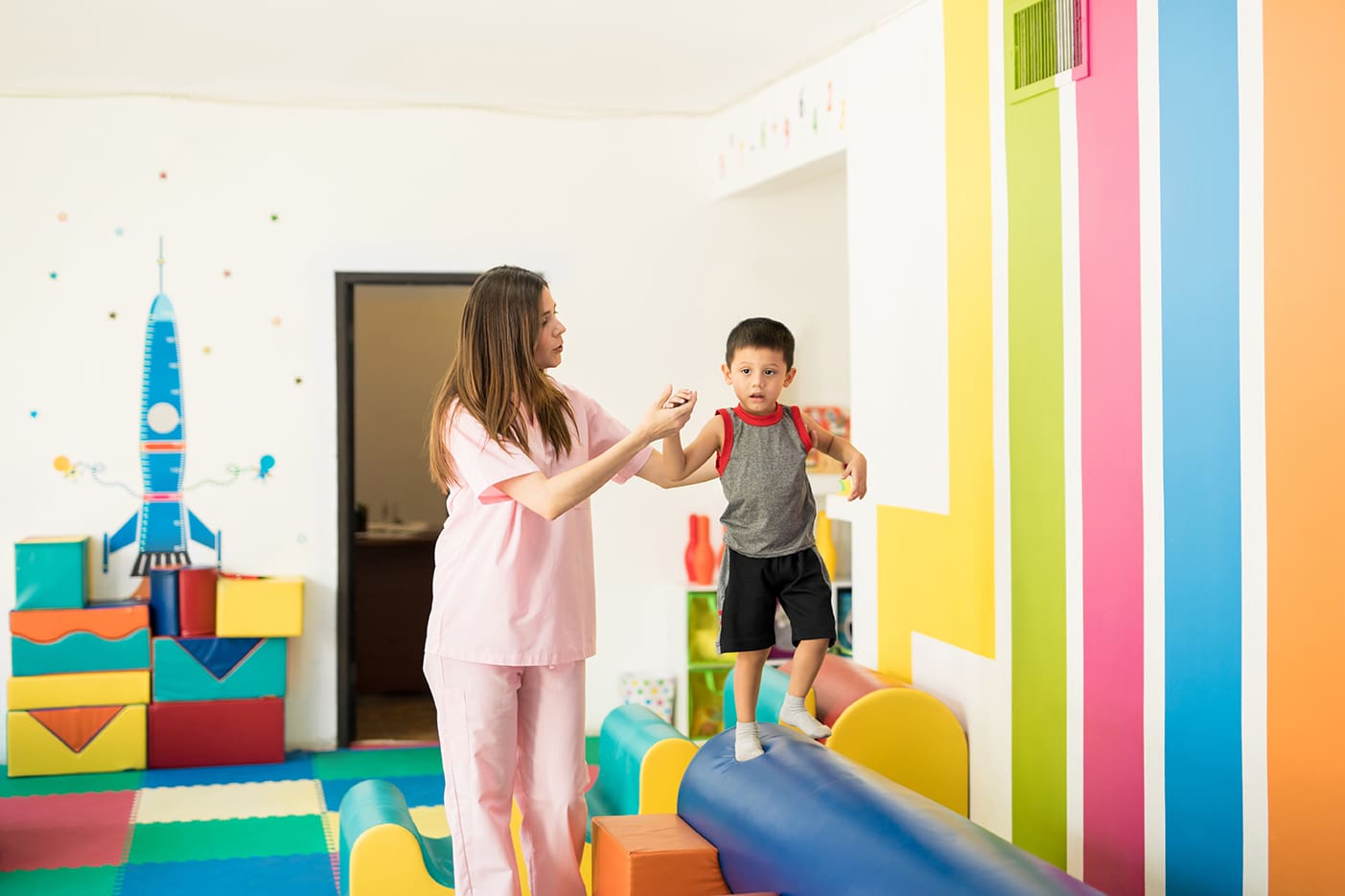Pediatric physical therapists help children develop essential movement skills that contribute to mobility, coordination, and independence in daily life. For children with hypotonia (low muscle tone), physical therapy focuses on strengthening muscles, improving posture, refining motor coordination, and enhancing motor control to promote better stability and movement efficiency. Early intervention can make a significant difference in helping children build strength and prevent long-term complications.
Key Goals of Physical Therapy for Hypotonia
Physical therapy for hypotonia is designed to target the muscle weakness, coordination difficulties, and postural challenges that often accompany low muscle tone. The primary goals of treatment include:
- Improving posture for better body alignment and stability
- Refining motor coordination to enhance smooth, controlled movement
- Strengthening muscles to support joint stability and prevent fatigue
- Increasing motor control for more precise and purposeful movements
- Enhancing muscle tone to improve balance and functional mobility
- Preventing contractures to maintain joint flexibility and range of motion
Posture and Hypotonia
Posture refers to the way the body is held in standing, sitting, lying down, or any other static position. Proper posture relies on muscle tension and balance to keep the body aligned and stable.
Why is posture important?
Good posture plays a vital role in maintaining balance, reducing fatigue, and minimizing strain on muscles and ligaments. Without proper posture, children may struggle to stand upright, engage in activities, or develop strength effectively. Physical therapy helps children with hypotonia achieve better posture by strengthening core muscles and improving body alignment.
Refining Motor Coordination
Motor coordination is the ability to use the body to perform actions smoothly, efficiently, and accurately. Children with hypotonia often experience delays in motor coordination, making it harder to complete tasks that require controlled movement.
Why is coordination important?
Good coordination allows children to move their bodies in an organized and purposeful way. Poor coordination can affect both fine and gross motor skills, limiting a child’s ability to engage with their environment, play, and perform daily activities. Physical therapy includes targeted exercises, balance training, and movement-based interventions to enhance coordination.
Building Muscle Strength
Muscle strength refers to how much force a muscle can generate during movement. Children with hypotonia often experience muscle weakness, which can lead to difficulties with walking, standing, sitting upright, and maintaining joint stability.
Why is strength important?
Since low muscle tone can make joints less stable, strengthening the muscles around them provides greater support and reduces the risk of injuries. Physical therapists design strength-building programs that use resistance exercises, weight-bearing activities, and play-based strengthening techniques to improve endurance and support movement.
Increasing Motor Control
Motor control is the process of initiating, directing, and adjusting movement for voluntary activities. This skill helps children execute controlled, precise, and coordinated movements.
Why is motor control important?
Motor control enables children to navigate their environment more efficiently and engage in everyday activities such as walking, running, and climbing. Physical therapy helps improve movement planning and execution, allowing children to develop greater confidence and independence in their mobility.
Enhancing Muscle Tone
Muscle tone refers to the natural tension and resistance in muscles at rest. In children with hypotonia, low muscle tone can affect reflexes, balance, and overall mobility.
Why is muscle tone important?
Muscle tone helps prepare the body for action and allows for quick reactions to movement and stimuli. Physical therapy incorporates dynamic exercises, weight-bearing activities, and core stabilization techniques to support better muscle engagement and functional movement.
Preventing Contractures
A contracture is a tightening of muscles, tendons, ligaments, or joints that restricts normal movement. Without proper stretching and mobility, children with hypotonia may develop stiffness that limits flexibility and range of motion.
How does physical therapy prevent contractures?
Through guided stretching, joint mobilization, and range-of-motion exercises, physical therapists help children maintain flexibility and prevent long-term movement restrictions.
How Physical Therapy Supports Children with Hypotonia
Early and consistent physical therapy can help children with hypotonia gain strength, improve coordination, and develop better control over their movements. Therapy sessions are designed to be engaging and play-based, incorporating interactive activities that encourage active participation.
If your child has low muscle tone, difficulty with coordination, or struggles with movement milestones, physical therapy may help them build strength and confidence. Contact Chicago Kids Therapy today to schedule an evaluation and learn how our experienced pediatric physical therapists can support your child’s mobility and development.


